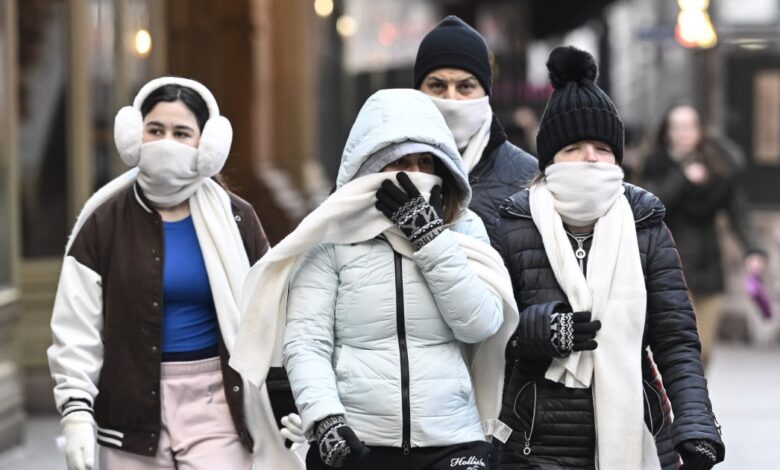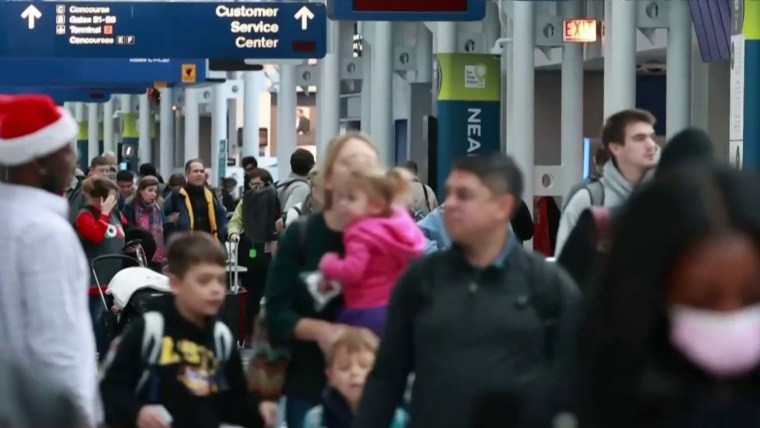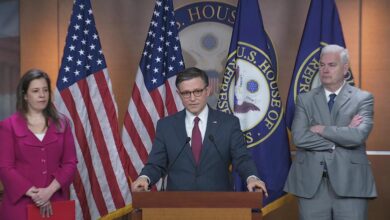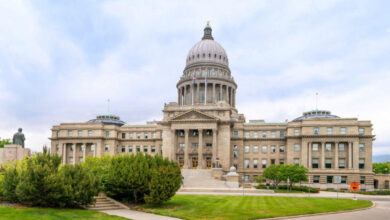Deadly winter storm brings travel chaos, ‘life-threatening’ frigid temperatures to much of the U.S.

Millions of people were hunkered down and staying on high alert Sunday amid a deadly winter storm that has killed at least 46 people, caused travel chaos across the U.S. and created a “potentially life-threatening hazard” for people on the move on Christmas Day.
“The life-threatening cold temperatures and in combination with dangerous wind chills will create a potentially life-threatening hazard for travelers that become stranded, individuals that work outside, livestock and domestic pets,” the National Weather Service said in a bulletin.
The service said that anyone who needs to be outside should dress in layers, cover as much of their skin as possible and pack winter safety kits in their vehicles.
“In some areas, being outdoors could lead to frostbite in minutes,” the service added.
The storm was vast in scale, stretching from the Great Lakes near Canada to the Rio Grande along the Mexican border.
At least 46 people had died as of Sunday evening, according to an NBC News tally. The deaths were recorded in 12 states: Colorado, Illinois, Kansas, Kentucky, Michigan, Missouri, Nebraska, New York, Ohio, Oklahoma, Tennessee and Wisconsin.
More than 3,300 domestic and international flights had been canceled as of Sunday afternoon, with more than 11,000 flights delayed, according to the tracking website FlightAward.
The storm was particularly devastating in the Buffalo, New York, area, where 16 people died after the area was slammed with a freezing blizzard.
“This will go down in history as the most devastating storm in Buffalo’s long, storied history of having battled many battles, many major storms,” New York Gov. Kathy Hochul said Sunday.
Blinding blizzards, freezing rain and frigid cold also knocked out power in places from Maine to Seattle, leaving hundreds of thousands of homes and businesses without power and millions of people on edge about the possibility of blackouts.
The start of the NFL’s Tennessee Titans’ game in Nashville was delayed an hour by a planned power outage.
Power was being restored nationwide — but by Sunday afternoon, more than 60,000 customers across the country remained without electricity, including nearly 34,000 customers in Maine, according to the Poweroutage.us website.
National Grid, which services customers in New York and Massachusetts, asked its customers on Saturday in Brooklyn, Queens, Staten Island and Long Island to reduce natural gas usage until Sunday afternoon.

Thousands of flights were also canceled as people tried to make their way home for Christmas. On Sunday, at least 1,200 flights were canceled across the country, stranding last-minute holiday travelers.
Increasing snowfall can be attributed in part to climate change, according to the Environmental Defense Fund, an environmental advocacy group, as “a warmer planet is evaporating more water into the atmosphere.”
“That added moisture means more precipitation in the form of heavy snowfall or downpours,” it said on its website.
“During warmer months, this can cause record-breaking floods. But during the winter — when our part of the world is tipped away from the sun — temperatures drop, and instead of downpours we can get massive winter storms,” it said.
Meanwhile, the National Weather Service said the conditions were “expected to slowly improve as the system weakens.” But for Sunday it said blustery winds would “continue to filter in cold Canadian air to the eastern two-thirds of the nation.”
It said that “heavy lake effect snow, strong winds, and reduced visibilities” would continue downwind of the Great Lakes and “bitter conditions” would remain across much of the country.
The Associated Press, Ava Kelley, Brittany Kubicko, Alex Lo, Elizabeth Maline, Joe Studley and Dennis Romero contributed.
Get Best News and Web Services here








